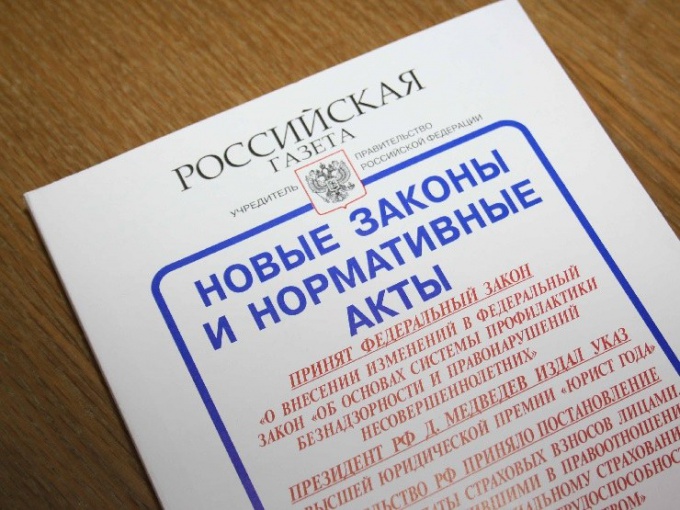What can be considered a regulatory document
In fact, the normative can be considered any document adopted or issued by law-making body. Lawmaking – one of the aspects of the functioning of the state. It is carried out with the purpose of formation of the legal system and includes the development of legal rules governing all types of legal relations, as well as their change, cancellation or addition. It is an ongoing process, as the realities of life are constantly changing. Therefore, the normative documents are created in the framework of a unified and consistent system of legal norms for the regulation prevailing in the state and society of diverse relations.
Law-making activity is carried out by the authorities, to which it belongs. The authority as the highest state power and subjects of Federation and municipal bodies of power and management. In some cases, legislative activity is exercised by citizens through participation in referendums.
Thus, a normative document is the official legal act or other law-making body within its jurisdiction. It is obligatory permanently or for a limited period of time. The calculated target document for repeated use.
The name of the normative document and its form of presentation and its normative content are interrelated. A normative document may exist in the form of a law, decree, resolution, decision, order, orders, rules, instructions, regulations. The exceptions are the letters and telegrams, they do not qualify as regulatory acts and documents.
Normative documents in the Russian Federation
The main regulatory document of the country is the Constitution of the Russian Federation, it has the highest legal force. It is a law of direct action, the compliance with which necessarily a priority in the entire state for the authorities of any level. Other laws and other normative documents accepted by law, must not contradict the norms contained in the Constitution.
Other important regulations are the legal provisions of different Codes containing norms of one branch of law, e.g. civil law, criminal procedure, housing, urban development, forest, water, etc. Laws can take as state bodies and bodies of Executive power of subjects of the Russian Federation: republics, krais, oblasts, etc.
